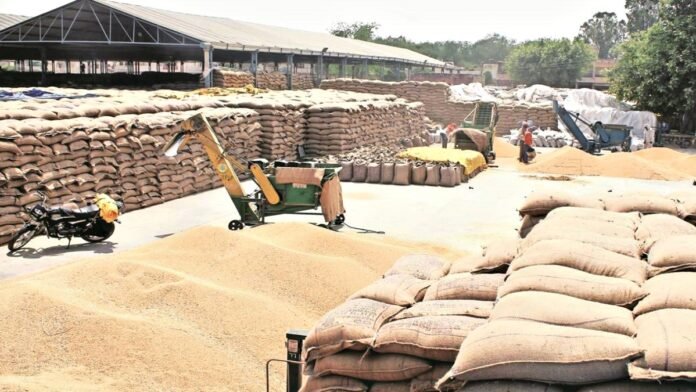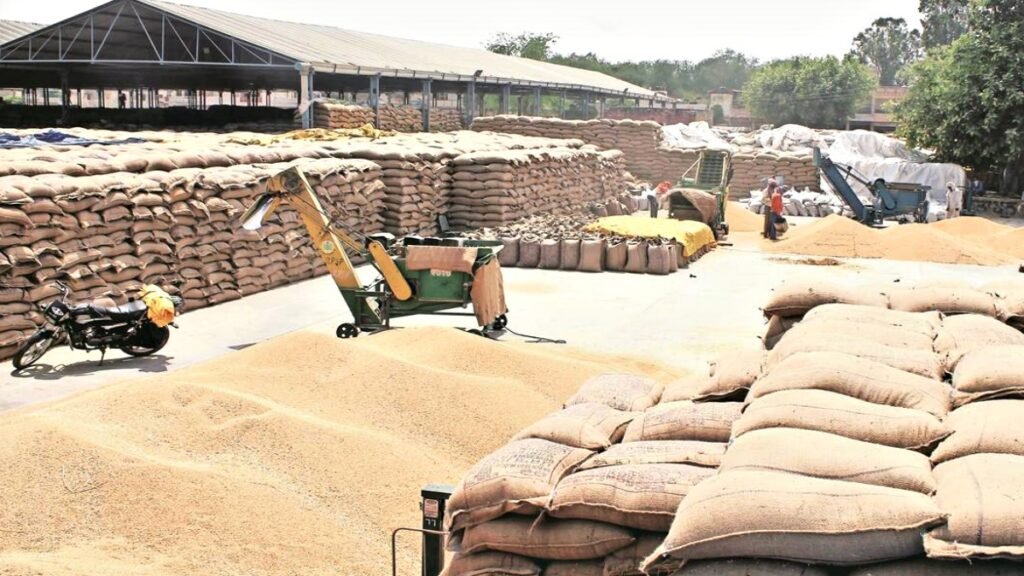
New Delhi: The Center has so far this year procured 262 lakh tonnes of wheat at minimum support price (MSP) and paid nearly Rs 47,000 crore to farmers. The Food Ministry said in a statement, “The procurement of wheat during the current Rabi Marketing Season (RMS) 2023-24 is progressing smoothly. The rising procurement of wheat in the current season till May 30 is 262 lakh tonnes, which is 74 lakh tonnes more than last year’s total procurement of 188 lakh tonnes.
21.27 lakh farmers benefited from wheat procurement work
Around 21.27 lakh farmers have benefitted from the wheat procurement exercise with payment of a Minimum Support Price of around Rs 47,000 crore. Rabi marketing season runs from April to March. However, the maximum bulk procurement of wheat is done between April and June. Wheat is a major rabi (winter-sown) crop. Major contribution in procurement is from three states Punjab, Madhya Pradesh, and Haryana. 121.27 lakh tonnes, 70.98 lakh tonnes, and 63.17 lakh tonnes have been procured from these states respectively. The ministry attributed the increase in procurement to the relaxation of quality specifications of wheat affected due to unseasonal rains, the opening of procurement centers at village/panchayat level, procurement through cooperative societies/gram panchayats/arhtiyas, etc. apart from designated procurement centers given for purchase.

Estimated purchase of 106 lakh tonnes of rabi rice
Regarding the procurement of rice, it said, “During Kharif Marketing Season (KMS) 2022-23, 385 lakh tonnes of Kharif rice has been procured till May 30, and 110 lakh tonnes of rice is yet to be procured. Apart from this, during the Kharif Marketing Season 2022-23, an estimated 106 lakh tonnes of rabi rice has been procured in the rabi crop. Kharif marketing season runs from October to September. The ministry said, “The combined stock of wheat and rice in the central pool is more than 579 lakh tonnes (wheat 312 lakh tonnes and rice 267 lakh tonnes). This stock has placed the country in a satisfactory position to meet its requirements for food grains.








































